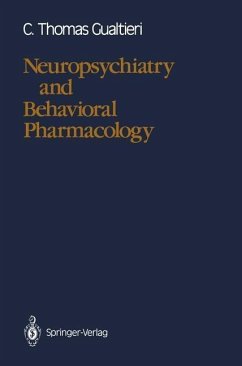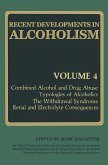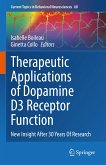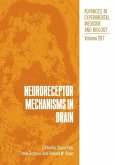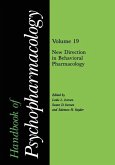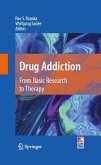C. Thomas Gualtieri
Neuropsychiatry and Behavioral Pharmacology (eBook, PDF)
89,95 €
89,95 €
inkl. MwSt.
Sofort per Download lieferbar

45 °P sammeln
89,95 €
Als Download kaufen

89,95 €
inkl. MwSt.
Sofort per Download lieferbar

45 °P sammeln
Jetzt verschenken
Alle Infos zum eBook verschenken
89,95 €
inkl. MwSt.
Sofort per Download lieferbar
Alle Infos zum eBook verschenken

45 °P sammeln
C. Thomas Gualtieri
Neuropsychiatry and Behavioral Pharmacology (eBook, PDF)
- Format: PDF
- Merkliste
- Auf die Merkliste
- Bewerten Bewerten
- Teilen
- Produkt teilen
- Produkterinnerung
- Produkterinnerung

Bitte loggen Sie sich zunächst in Ihr Kundenkonto ein oder registrieren Sie sich bei
bücher.de, um das eBook-Abo tolino select nutzen zu können.
Hier können Sie sich einloggen
Hier können Sie sich einloggen
Sie sind bereits eingeloggt. Klicken Sie auf 2. tolino select Abo, um fortzufahren.

Bitte loggen Sie sich zunächst in Ihr Kundenkonto ein oder registrieren Sie sich bei bücher.de, um das eBook-Abo tolino select nutzen zu können.
Zur Zeit liegt uns keine Inhaltsangabe vor.
- Geräte: PC
- ohne Kopierschutz
- eBook Hilfe
- Größe: 40.24MB
Andere Kunden interessierten sich auch für
![Recent Developments in Alcoholism (eBook, PDF) Recent Developments in Alcoholism (eBook, PDF)]() Recent Developments in Alcoholism (eBook, PDF)161,95 €
Recent Developments in Alcoholism (eBook, PDF)161,95 €![Therapeutic Applications of Dopamine D3 Receptor Function (eBook, PDF) Therapeutic Applications of Dopamine D3 Receptor Function (eBook, PDF)]() Therapeutic Applications of Dopamine D3 Receptor Function (eBook, PDF)113,95 €
Therapeutic Applications of Dopamine D3 Receptor Function (eBook, PDF)113,95 €![Neuroreceptor Mechanisms in Brain (eBook, PDF) Neuroreceptor Mechanisms in Brain (eBook, PDF)]() Neuroreceptor Mechanisms in Brain (eBook, PDF)40,95 €
Neuroreceptor Mechanisms in Brain (eBook, PDF)40,95 €![Psychotropic Agents (eBook, PDF) Psychotropic Agents (eBook, PDF)]() Psychotropic Agents (eBook, PDF)113,95 €
Psychotropic Agents (eBook, PDF)113,95 €![Handbook of Psychopharmacology (eBook, PDF) Handbook of Psychopharmacology (eBook, PDF)]() Handbook of Psychopharmacology (eBook, PDF)40,95 €
Handbook of Psychopharmacology (eBook, PDF)40,95 €![Drug Addiction (eBook, PDF) Drug Addiction (eBook, PDF)]() Drug Addiction (eBook, PDF)161,95 €
Drug Addiction (eBook, PDF)161,95 €![Biological Effects of Alcohol (eBook, PDF) Biological Effects of Alcohol (eBook, PDF)]() Biological Effects of Alcohol (eBook, PDF)73,95 €
Biological Effects of Alcohol (eBook, PDF)73,95 €-
-
-
Zur Zeit liegt uns keine Inhaltsangabe vor.
Dieser Download kann aus rechtlichen Gründen nur mit Rechnungsadresse in A, B, BG, CY, CZ, D, DK, EW, E, FIN, F, GR, HR, H, IRL, I, LT, L, LR, M, NL, PL, P, R, S, SLO, SK ausgeliefert werden.
Produktdetails
- Produktdetails
- Verlag: Springer New York
- Seitenzahl: 353
- Erscheinungstermin: 6. Dezember 2012
- Englisch
- ISBN-13: 9781461390367
- Artikelnr.: 44058672
- Verlag: Springer New York
- Seitenzahl: 353
- Erscheinungstermin: 6. Dezember 2012
- Englisch
- ISBN-13: 9781461390367
- Artikelnr.: 44058672
- Herstellerkennzeichnung Die Herstellerinformationen sind derzeit nicht verfügbar.
1. The Neuropsychiatric Sequelae of Traumatic Brain Injury.- The Neurobehavioral Sequelae of Traumatic Brain Injury.- The Prediction of Outcome.- The Trajectory of Recovery.- Evaluation of the TBI Patient.- 2. Delayed Neurobehavioral Sequelae of Traumatic Brain Injury.- Affective Disorders.- Delayed Amnesia.- Posttraumatic Epilepsy.- Psychosis.- Dementia.- 3. The Psychopharmacology of Traumatic Brain Injury.- Principles of Treatment.- Psychostimulants.- Amantadine.- Other Dopamine Agonists.- Antidepressants.- Lithium.- Neuroleptics.- The Psychotropic Anticonvulsants.- Benzodiazepines.- Buspirone.- Beta-Adrenergic Blockers.- Alpha Agonists.- Calcium Channel Blockers.- Opiates.- Other Neuropeptides.- Cholinergic Drugs.- Nootropes.- Cranial Electrostimulation (CES).- Examining the Patient on Psychoactive Medication.- 4. Inadvertent Drug Effects.- Licit Drugs.- Illicit Drugs.- Drugs Prescribed for Medical Reasons.- H2 Receptor Antagonists.- Sympathomimetics.- Antispasticity Drugs.- 5. Epilepsy.- Neuropsychiatric Conditions in Epileptic Patients.- Psychiatric Conditions That May Be Related to Epilepsy.- Neuropsychological and Behavioral Effects of Anticonvulsant Drugs.- Psychotropic Drugs as Convulsants and as Anticonvulsants.- 6. Neuropsychiatric Disorders in Mentally Retarded People.- Traditional Psychiatric Disorders.- Behavioral Disorders.- Pathobehavioral Mental Retardation Syndrome.- Disorders of Serotonin Regulation.- 7. Self-Injurious Behavior.- The Pharmacotherapy of SIB.- Testing the D1 Model.- The Differential Diagnosis of SIB.- 8. Behavior in the Cornelia De Lange Syndrome.- The CDLS Survey.- Contrasting Data.- Behavior in the Cornelia de Lange Syndrome.- 9. Autism.- What Is Autism?.- The Psychopharmacology of Autism.- Psychopharmacology for Autistic People.- Epilepsy.- Self-Injurious Behavior.- Aggression.- Obsessive-Compulsive Behavior.- Tourette's Syndrome.- Abulia.- Affective Disorders.- Anxiety, Agitation, and Panic.- Psychosis and Schizophrenia.- Hyperactive or Disorganized Behavior.- The Kluver-Bucy Syndrome.- Megavitamins.- 10. Tardive Dyskinesia.- The Prevalence of Serious Neuroleptic Side Effects.- Risk Factors for Tardive Dyskinesia.- Biological Mechanisms.- Diagnosis.- Treatment.- The Course of the Disorder.- Malignant TD.- Behavioral and Cognitive Manifestations of Tardive Dyskinesia.- Neuroleptic Nonresponders.- Alternatives to Neuroleptic Treatment.- Tardive Dyskinesia Policy and Recommendations.- TMS: A System for Prevention and Control.- The Development of TMS.- 11. Three Neuropsychiatric Conditions of Childhood.- Childhood Hyperactivity.- The Kleine-Levin Syndrome.- Rheumatic Psychosis.- 12. Behavioral Psychopharmacology.- Therapeutic Trials Are Hypothesis Testing.- Theoretical Models Run in Parallel.- Behavior Is a Measurable Thing.- There Is a Personal Economy to Consider.- And a Wider Economy.- Structure.- Epilepsy Is First.- In Fever of Unknown Origin, Stop All Drugs.- Overt Toxicity Is Not a Bad Thing.- Long-Term Drugs Require Long-Term Evaluation.- Doses are Empirical.- "Yes-No" Drugs.- You Do Not Know Until You Try.- Monitoring Is No Substitute for Intelligence.- Afterword.- Appendices.- References.
1. The Neuropsychiatric Sequelae of Traumatic Brain Injury.- The Neurobehavioral Sequelae of Traumatic Brain Injury.- The Prediction of Outcome.- The Trajectory of Recovery.- Evaluation of the TBI Patient.- 2. Delayed Neurobehavioral Sequelae of Traumatic Brain Injury.- Affective Disorders.- Delayed Amnesia.- Posttraumatic Epilepsy.- Psychosis.- Dementia.- 3. The Psychopharmacology of Traumatic Brain Injury.- Principles of Treatment.- Psychostimulants.- Amantadine.- Other Dopamine Agonists.- Antidepressants.- Lithium.- Neuroleptics.- The Psychotropic Anticonvulsants.- Benzodiazepines.- Buspirone.- Beta-Adrenergic Blockers.- Alpha Agonists.- Calcium Channel Blockers.- Opiates.- Other Neuropeptides.- Cholinergic Drugs.- Nootropes.- Cranial Electrostimulation (CES).- Examining the Patient on Psychoactive Medication.- 4. Inadvertent Drug Effects.- Licit Drugs.- Illicit Drugs.- Drugs Prescribed for Medical Reasons.- H2 Receptor Antagonists.- Sympathomimetics.- Antispasticity Drugs.- 5. Epilepsy.- Neuropsychiatric Conditions in Epileptic Patients.- Psychiatric Conditions That May Be Related to Epilepsy.- Neuropsychological and Behavioral Effects of Anticonvulsant Drugs.- Psychotropic Drugs as Convulsants and as Anticonvulsants.- 6. Neuropsychiatric Disorders in Mentally Retarded People.- Traditional Psychiatric Disorders.- Behavioral Disorders.- Pathobehavioral Mental Retardation Syndrome.- Disorders of Serotonin Regulation.- 7. Self-Injurious Behavior.- The Pharmacotherapy of SIB.- Testing the D1 Model.- The Differential Diagnosis of SIB.- 8. Behavior in the Cornelia De Lange Syndrome.- The CDLS Survey.- Contrasting Data.- Behavior in the Cornelia de Lange Syndrome.- 9. Autism.- What Is Autism?.- The Psychopharmacology of Autism.- Psychopharmacology for Autistic People.- Epilepsy.- Self-Injurious Behavior.- Aggression.- Obsessive-Compulsive Behavior.- Tourette's Syndrome.- Abulia.- Affective Disorders.- Anxiety, Agitation, and Panic.- Psychosis and Schizophrenia.- Hyperactive or Disorganized Behavior.- The Kluver-Bucy Syndrome.- Megavitamins.- 10. Tardive Dyskinesia.- The Prevalence of Serious Neuroleptic Side Effects.- Risk Factors for Tardive Dyskinesia.- Biological Mechanisms.- Diagnosis.- Treatment.- The Course of the Disorder.- Malignant TD.- Behavioral and Cognitive Manifestations of Tardive Dyskinesia.- Neuroleptic Nonresponders.- Alternatives to Neuroleptic Treatment.- Tardive Dyskinesia Policy and Recommendations.- TMS: A System for Prevention and Control.- The Development of TMS.- 11. Three Neuropsychiatric Conditions of Childhood.- Childhood Hyperactivity.- The Kleine-Levin Syndrome.- Rheumatic Psychosis.- 12. Behavioral Psychopharmacology.- Therapeutic Trials Are Hypothesis Testing.- Theoretical Models Run in Parallel.- Behavior Is a Measurable Thing.- There Is a Personal Economy to Consider.- And a Wider Economy.- Structure.- Epilepsy Is First.- In Fever of Unknown Origin, Stop All Drugs.- Overt Toxicity Is Not a Bad Thing.- Long-Term Drugs Require Long-Term Evaluation.- Doses are Empirical.- "Yes-No" Drugs.- You Do Not Know Until You Try.- Monitoring Is No Substitute for Intelligence.- Afterword.- Appendices.- References.
